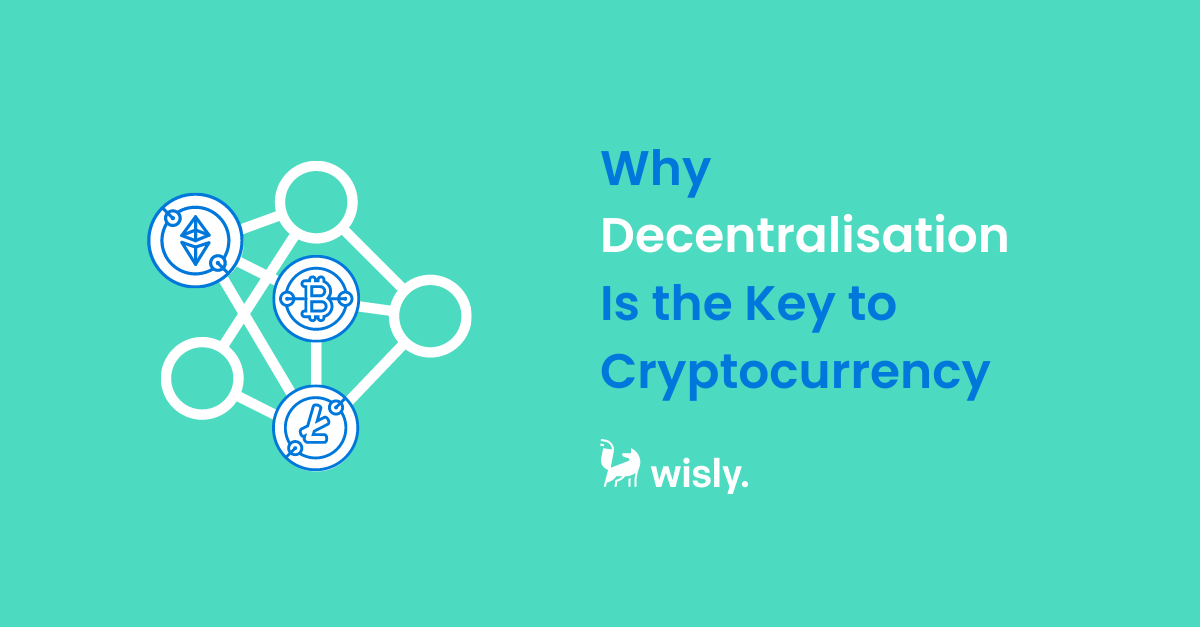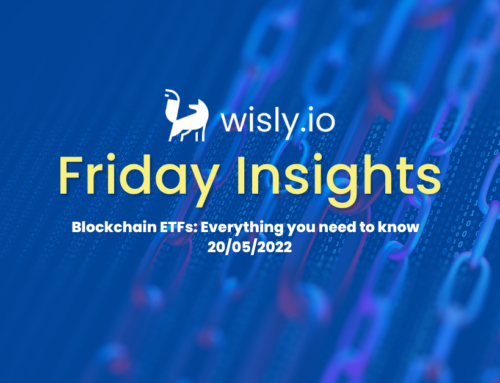Cryptocurrency has firmly entered the popular lexicon, being viewed as a genuine alternative currency and even a social movement. Crypto is a vessel that demonstrates how technological invention mirrors cultural change.
A powerful subtext to the cryptocurrency conversation is the notion of decentralisation. The underlying technology system known as the blockchain can disrupt the middlemen and authorities who currently make the economic world as we know it tick.
What is Decentralisation?

In a decentralised market, technological advances allow investors to deal directly with one other rather than operating in a centralised exchange. Decentralisation, in essence, means that no single entity has exclusive control over data or its processes. Virtual markets where you can make use of decentralised currency, or cryptocurrencies, are prime examples of decentralised markets.
The rise of blockchain technology and cryptocurrency has created further opportunities to operate within these decentralised markets. Usually, virtual markets are not regulated, which their advocates believe is a good thing. The exchange of decentralised currency in a virtual marketplace affords investors a sense of security and trust as they conduct their transactions with anonymity.
The growth of these decentralised currency markets for financial transactions has led to discussions about ways to regulate it. Should this occur, virtual market proponents could see this as a delusion of their current benefits of anonymity and direct control over their transactions.
The Nature of Blockchain
Blockchain is expected to create a new economic system by revolutionising how we communicate much in the same way the internet did. Blockchain aims to improve information security and transparency by sharing encrypted data via peer-to-peer (P2P) networks.
An emphasis on security and trust has seen an increased demand for blockchain’s application in various business sectors. The decentralised nature of blockchain breathes life into the concept of a token economy in which income can be designated to actual content producers and service users who create value.
Blockchain will support establishing new protocols for a token economy of the future, leading to a new economic paradigm globally.
Patriciate in a Trustless System

Trust in institutions is at historic lows. Google, Facebook, WhatsApp and other corporate giants have been in their fair share of controversial headlines in recent times. As a result, it’s no surprise that many consumers, including Millennials and Generation Z, are no longer comfortable putting sensitive data, money, and personal property under the control of any central authority.
Decentralisation solves trust issues by empowering multiple participants to manage a network. User trust need not exist in any central authority, and protocols are designed to prevent malicious behaviour.
Decentralised currencies are a real-world demonstration of blockchain technology, fuelling further development of decentralised applications. The absence of a formal governance model in crypto leaves developers with large influence over their protocols and platform changes. This freedom embodies what the industry is based on. Some protocols allow users to demine the changes made on their platform, giving the power directly to its community of users. This contrasts heavily with how traditional fiat institutions work, where the government or a financial authority sets regulation.
Lower Risk of Failure
One of the driving forces for developing a trustless peer-to-peer electronic cash system was the failure of digital currencies that relied on a central authority to verify payments, such as e-gold.
Nowhere is trust more paramount than when it comes to monetary systems. Decentralisation has stimulated digital currencies due to their ability to gain user confidence. Cryptocurrencies’ increase in value also reflects people’s scepticism of central banks and government planners’ motives, ethics, or competence.
The underlying protocol, decentralisation, is an antidote to too-big-to-fail. Single points of failure can bring down an economic system, such as a Wall Street bank that needs a massive bailout, to avoid crashing a financial system.
In technology, single points of failure can bring networks to a halt. We’ve all experienced this when a website or ATM software crashes. In decentralised systems, a node that goes offline passes its workload to other nodes. This delegation means applications can remain up and running. Only a system devoid of a single point of failure – such a decentralised system – can withstand being taken down by any threat.
Censorship Resistance Fosters an Open Culture
Central entities or malicious individuals can shut down legitimate concerns about proposals or practices that, if implemented, can improve an organisation or prevent bad behaviour. Peer-to-peer communication is far harder to censor as it fosters an environment that allows for meritocracy and constructive feedback.
Many are transitioning to work with blockchain companies because of their positive and open culture, starkly differing from traditional corporate culture.
Decentralised networks are usually open-source projects, meaning anyone can build apps, products, and services on top of them. This expands the opportunity for network growth enormously. Under closed systems, developers are limited to a central organisation dictating what can be built or developed.
Decentralisation isn’t solely a technological approach. It’s a mindset and culture that doesn’t focus on an individual’s intent but instead seeks the best way forward for an entire ecosystem. For cryptocurrency, this is critical as it is an industry set to transform economies and unshackle the world from the chains of a system no longer serving them.
Any data, text or other content on this page is provided as general market information and not as investment advice. Past performance is not necessarily an indicator of future results.




